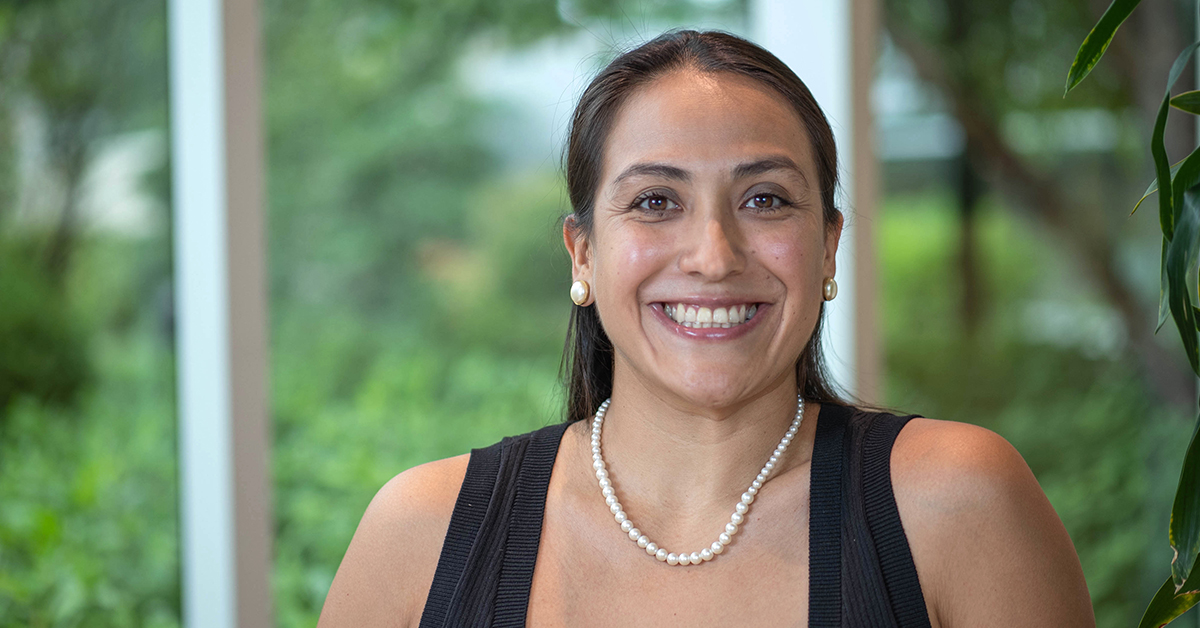
PHILADELPHIA (October 14, 2021)—Cristina Uribe-Alvarez, PhD, a postdoctoral associate in the lab of Jonathan Chernoff, MD, PhD, at Fox Chase Cancer Center recently received a $75,000 one-year grant from the F.M. Kirby Foundation to continue her study on RAC1 mutations in melanoma.
RAC1 is a gene that codes for a small GTPase that plays a key role in regulating cell growth, division, cytoskeletal reorganization, and cell migration. After BRAF and NRAS, RAC1 is the third most common recurring mutation in melanomas.
“RAC1 GTPase works like a switch: When it’s turned ‘on,’ it will turn on pathways that activate cell division, migration, and survival. Activating mutations in RAC1, such as the substitution of proline to serine in position 29, can cause the switch to stay ‘on’ and make cells replicate faster, migrate more, and form melanomas,” said Uribe-Alvarez. “A couple of years ago we started doing research on RAC1-mutated melanomas and found that blocking several downstream effectors could inhibit RAC1-mediated tumor formation.”
From these findings, Uribe-Alvarez and colleagues developed a second part of the study to explore the effects of combined mutations in melanoma.
“BRAF oncogene mutations make up about 60% of mutations that are present in melanoma patients. When you have activating mutations in both BRAF and RAC1, you have a pretty deadly combination, since tumors become resistant to chemotherapy and immunotherapy. If you have this combination of mutations and the tumor has spread, the prognosis is rather grim,” she said.
Uribe-Alvarez and her colleagues have developed transgenic human cell lines, zebrafish, and mice to study BRAF/RAC1 mutations alone and in combination. These models are being used to propose new therapeutic targets and to develop new treatments regimens that are effective against the proliferation and migration of melanoma.
Although the work of Uribe-Alvarez and colleagues has led to a clearer understanding of RAC1 oncogenic signaling mechanisms, she said future work will need to address how RAC1 mutations contribute to resistance to targeted therapy.
“It was a great honor to receive the F. M. Kirby Foundation Grant. It means that my work is valued and that I can continue working on this important project for another year. Science is my passion, and even though sometimes schedules and working with animals is rough, I love designing experiments that can help us figure out how we’re going to fix these problems,” she said.
“The Kirby grant will also allow me to fund the experiments needed to find possible therapeutic targets for these tumors and hopefully give alternatives that may increase patients’ life expectancy.”
Since its inception, the F.M. Kirby Foundation has awarded nearly $735 million in grants. According to the foundation, its goal is to invest in opportunities that foster self-reliance or otherwise create strong, healthy communities. In addition to health endeavors, the foundation also awards grants in areas including education, human services, arts, culture and humanities, among others.